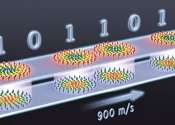Actions needed beyond lawsuit to address social media's influence on youth, say experts
While four Ontario school boards recently announced a $4.5-billion lawsuit against the social media giants behind Facebook, Instagram, Snapchat and TikTok, Brock University experts are calling for additional actions to address ...









